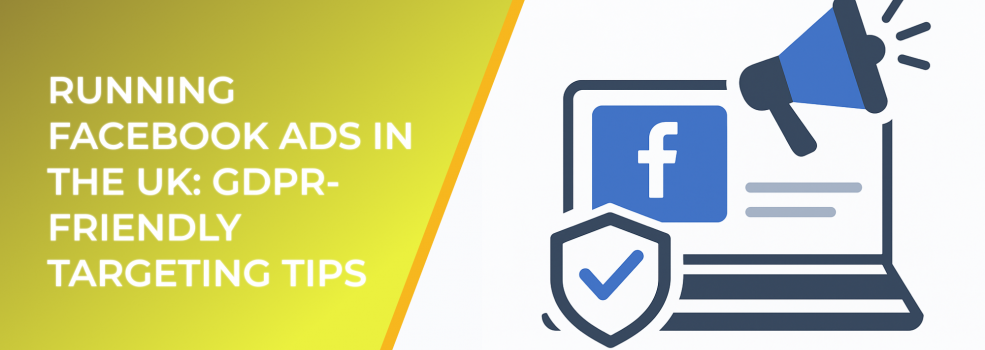The General Data Protection Regulation (GDPR) sets strict rules on how personal data can be collected, processed, and used. Since Facebook Ads rely heavily on user data for targeting, UK advertisers need to ensure their campaigns respect privacy laws to avoid fines that can reach up to €20 million or 4% of annual global turnover.
Over 66 % of UK consumers highly value data privacy, yet 75 % feel they lack full control over their personal data
According to the UK Information Commissioner’s Office (ICO), 72% of consumers are concerned about how their data is being used. This means advertisers who demonstrate compliance and transparency have a clear advantage in building trust.
GDPR-Friendly Targeting Strategies
1. Use Interest and Behavior Targeting Instead of Sensitive Data
Avoid targeting based on sensitive attributes like health, ethnicity, or political beliefs. Instead, leverage Facebook’s built-in categories such as interests (e.g., fitness, travel, technology) and online behaviors (e.g., engaged shoppers). These allow for precision without crossing legal boundaries.
2. Build Custom Audiences with Consent
If you use customer data for retargeting, make sure it comes from users who explicitly opted in. For example, collect email addresses through a signup form that includes a clear consent checkbox. Without clear permission, uploading customer data to Facebook Ads could violate GDPR.
3. Use Lookalike Audiences Carefully
Lookalike audiences can expand your reach, but their source must be GDPR-compliant. Always build seed audiences from lists of users who have given explicit consent. This ensures you are scaling your campaigns without risking non-compliance.
4. Implement Facebook’s Conversions API with Transparency
The Conversions API allows you to track events directly from your website server to Facebook. This reduces reliance on cookies and provides more accurate data while giving you control over what information is shared. Make sure your privacy policy explains this clearly to users.
5. Regularly Audit Your Ad Data
Set up quarterly reviews of how your business collects, stores, and uses customer data. Check that all lead forms, tracking pixels, and uploaded lists align with GDPR rules. A proactive audit can prevent costly mistakes.
The Business Case for GDPR Compliance
UK consumers are increasingly mistrustful: 19 % have been notified of data breaches in the past year, and 68 % stopped buying from those brands
A recent survey found that 54% of UK consumers are more likely to purchase from companies that protect their data. By running GDPR-compliant Facebook Ads, you not only avoid penalties but also strengthen your brand reputation and improve campaign performance by reaching audiences that trust your business.
Final Thoughts
Facebook Ads remain one of the most powerful tools for UK businesses, but GDPR compliance is non-negotiable. By focusing on transparency, consent-driven targeting, and privacy-first practices, advertisers can run effective campaigns that build trust and deliver results.
Suggested Reading
If you found this article helpful, you may also be interested in:

